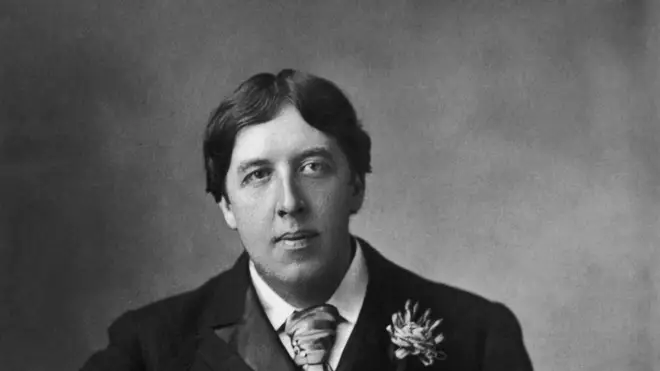On Air Now
Early Breakfast with Lindsey Russell 4am - 6:30am
20 April 2019, 21:00 | Updated: 20 April 2019, 21:01

While Irish writer and poet, Oscar Wilde, was celebrated for his masterful storytelling and wit, his personal life and sexuality came under scrutiny during a time when homosexuality was a crime.
Throughout the 1880s, Irish writer and poet Oscar Wilde became somewhat of a celebrity within Victorian society.
Between 1886-1891, Wilde was a journalist. He initially wrote for The Pal Mall Gazette in London, sharing his views on literature, art and life.
Wilde had a clear flair for writing and critical thinking, and soon became the editor of The Lady's World magazine - which he swiftly renamed The Woman's World. In addition to articles and features on serious parenting issues, politics and the arts, the magazine usually included two pieces of fiction - one to be read to children, the other for the reader themselves.
Alongside his work in journalism, Wilde then started to write essays and short stories. In the summer of 1890, he published his first - and arguably most famous - novel, The Picture of Dorian Gray.
The story follows a young gentleman who becomes aware of his staggering beauty when an artist by the name of Basil Hallward paints his portrait. Dorian gradually becomes more and more corrupted by society - or perhaps he always had the ability to be corrupted - but bears no sign of the debauched and treacherous things he carries out. Instead, the painting itself takes the burden of Dorian's sins.
The duality in Dorian's nature has been argued to represent that of Wilde's himself. While he was married with two sons, he was homosexual. But as the law prohibited it, he was forced into a life of oppression and secrecy.
The same year Oscar Wilde was celebrated for his stage success with The Importance of Being Earnest, he was apprehended by authorities.
The year was 1895, and homosexuality was very much illegal and considered immoral in Victorian society. The laws around homosexuality devastatingly only changed in 1967, when homosexuality was decriminalised in the Sexual Offences Act.
His lover's father left Wilde a calling card, addressing hime as a "posing somdomite [sic]" in February that year. Wilde then took the man to court for libel.
During the libel case, details of Wilde's personal life were revealed, and within just a few days it was Wilde himself being put on trial for 'indecency'.
The story was plastered over the front page of the Police News.
The trial itself took place at London's Bow Street.
He was found guilty and sentenced to two year in prison.
Wilde described the experience in his poem, 'The Ballad of Reading Gaol', in which he wrote:
I walked, with other souls in pain,
Within another ring,
And was wondering if the man had done
A great or little thing,
When a voice behind me whispered low,
"That fellow’s got to swing."
Dear Christ! the very prison walls
Suddenly seemed to reel,
And the sky above my head became
Like a casque of scorching steel;
And, though I was a soul in pain,
My pain I could not feel.
I only knew what hunted thought
Quickened his step, and why
He looked upon the garish day
With such a wistful eye;
The man had killed the thing he loved
And so he had to die.
It was clear that his time in prison had crushed his spirit.
After his release, Wilde spent the last three years of his life living in exile.
He died in Paris in 1900, aged just 46, after developing meningitis. Others at the time claimed it was actually syphilitic, but this has never been proven. Wilde's grandson believed this to be a misconception.
Wilde's body was buried in Paris' Père Lachaise Cemetery, where other famous writers like Albert Camus are buried.